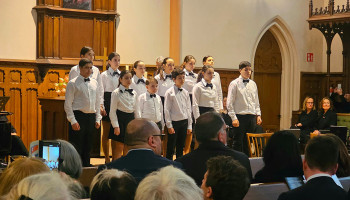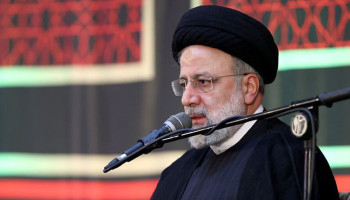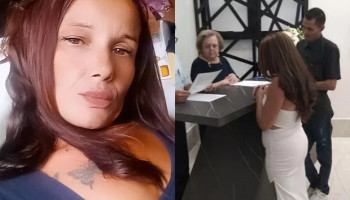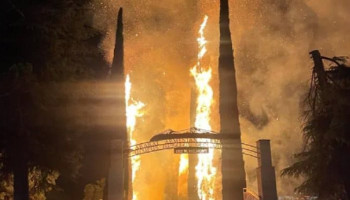Trump: 'Sad day' for North Korea if military strikes
 An American military strike on North Korea is not inevitable, US President Donald Trump said, but it would be "a very sad day" for the Asian nation if it ever came to fruition. Trump also said North Korea "is behaving badly and it's got to stop". He was speaking at a White House news conference after meeting the leader of Kuwait on Thursday. "Military action would certainly be an option. Is it inevitable, nothing's inevitable. Hopefully we're not going to have to use it [military action] on North Korea. If we do use it on North Korea, it will be a very sad day for North Korea," he said. Trump, like his predecessors, may find neither negotiations nor economic and military pressure can force North Korea to abandon its nuclear programme, and the United States has no choice but to try to contain it and deter North Korean leader Kim Jong-un from ever using a nuclear weapon.North Korea conducted its sixth and most powerful nuclear test on September 2, describing it as an advanced hydrogen bomb for a long-range missile, a dramatic escalation of its stand-off with the United States and its allies. Even as Trump has insisted now is not the time to talk to North Korea, senior members of his administration have made clear the door to a diplomatic solution remains open, especially given the US assessment that any preemptive strike would unleash massive North Korean retaliation. US officials declined to discuss operational planning but acknowledge no existing plan for a preemptive strike could promise to prevent a brutal counterattack by North Korea, which has thousands of artillery pieces and rockets trained on the South Korean capital, Seoul. US and Asian officials say it is necessary to try negotiations and more economic pressure but concede these are unlikely to curb, let alone eliminate, the nuclear and missile programmes that North Korean considers essential to its survival. North Korea says it needs its weapons to protect itself from US aggression. South Korea and the United States are technically still at war with North Korea after the 1950-53 Korean conflict ended with a truce, not a peace treaty. "Invariable is the aggressive ambition of the US to dominate Asia and the rest of the world by swallowing up the whole Korean peninsula," said a statement on Friday on the North's official Korean Central News Agency. A senior Trump administration official said it is unclear whether the Cold War-era deterrence model that Washington used with the Soviet Union could be applied to a rogue state such as North Korea, adding: "I don't think the president wants to take that chance." "We are very concerned that North Korea might not be able to be deterred," the official said, speaking to reporters on condition of anonymity shortly after Trump's remarks.There has been no sign the White House, which has been cool to the idea of talks and hopes pressure can change the North's calculus, is ready to settle for a containment strategy. Despite pessimism about discussions with Pyongyang, a US official speaking on condition of anonymity said there was a chance that economic pressure, especially from China, combined with an agreement to negotiate could convince North Korea to limit its nuclear arsenal, or even sign the 1996 Comprehensive Nuclear Test-Ban Treaty."Signing the CTBT would given the North tacit admission to the nuclear club but end its testing programme," the official said. "That, along with assured destruction, might be the best that could be done." The remaining question, however, is whether Trump would be willing to settle for that. "Discipline and steadiness are not words one usually uses in a sentence that also has the name Donald Trump," said Robert Einhorn, a former State Department official who negotiated with North Korea and is now at the Brookings Institution think-tank. "Would he over time recognise that he may have no choice?" Frank Jannuzi, president of the Mansfield Foundation, which promotes US-Asia relations, is more optimistic. "Does he have the patience to manage a difficult process of deterrence and containment against the [North] rather than doing something impulsive? I think so," he said. "Some of his deals have taken years to come to fruition." The concept of containment comes as the US and its allies plan to go to the UN Security Council with major new sanctions, including cutting off China's oil supply to the North and imposing an asset freeze and travel ban on leader Kim Jong-il.Japanese Prime Minister Shinzo Abe and South Korean President Moon Jae-in spoke in Vladivostok on Thursday and agreed to try to persuade China and Russia to cut off oil to North Korea as much as possible, according to South Korean officials. North Korea accused South Korea and Japan of "dirty politics," and said it would respond to any new UN sanctions and US pressure with "powerful counter measures", accusing the United States of aiming for war. Meanwhile, the Mexican government on Thursday declared the North Korean ambassador to Mexico, Kim Hyong-gil, persona non grata to protest its recent nuclear activity. In a statement, the government said it had given the ambassador 72 hours to leave Mexico in a step meant to express its "absolute rejection" of North Korea's actions, describing them as a grave threat to the region and the world. |


















